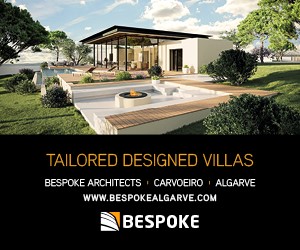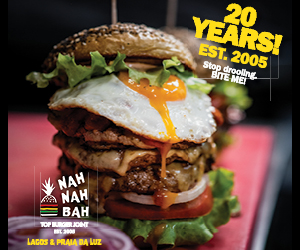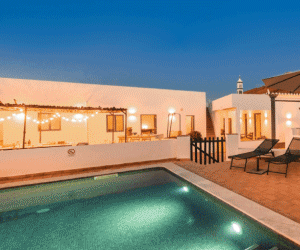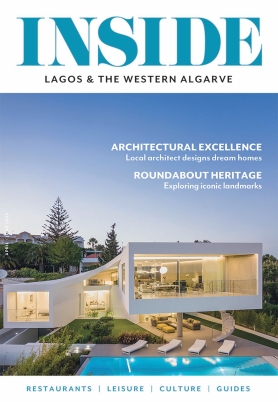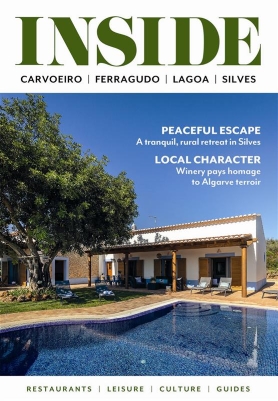Over the years, this quaint fishing village has become home to more and more businesses and restaurants that honour its history
– April 11, 2024 | Text Beatriz Maio
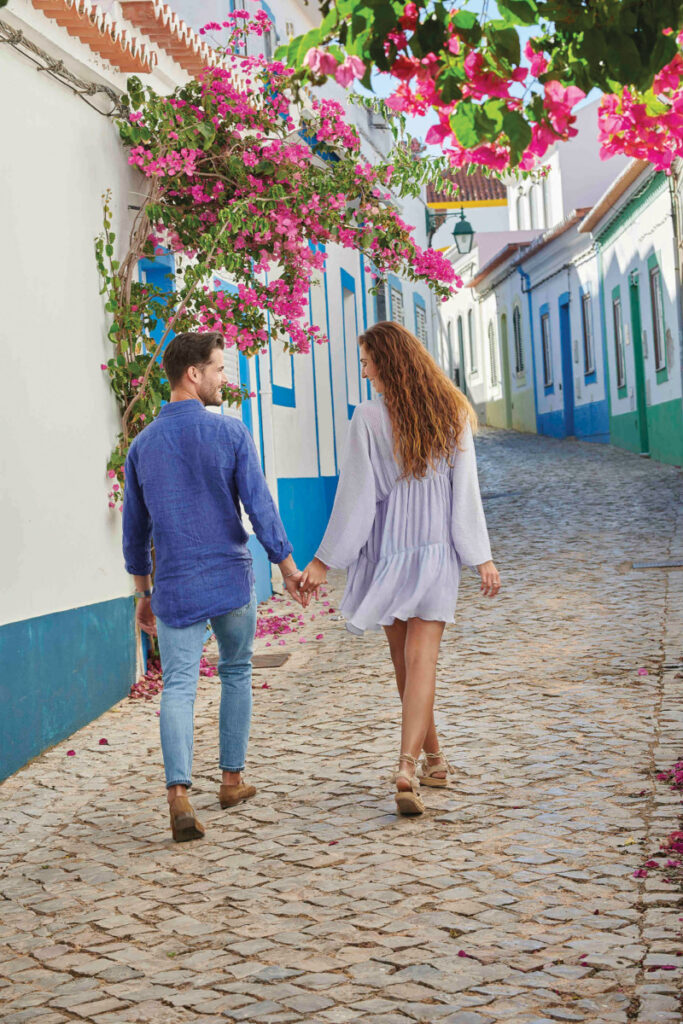
Over the last few decades, Ferragudo has continued to grow in a wide variety of areas, from property to hospitality. Not only are more and more tourists visiting and taking an interest in the village, but investors, both Portuguese and foreign, want to capitalise on this quiet parish in the municipality of Lagoa.
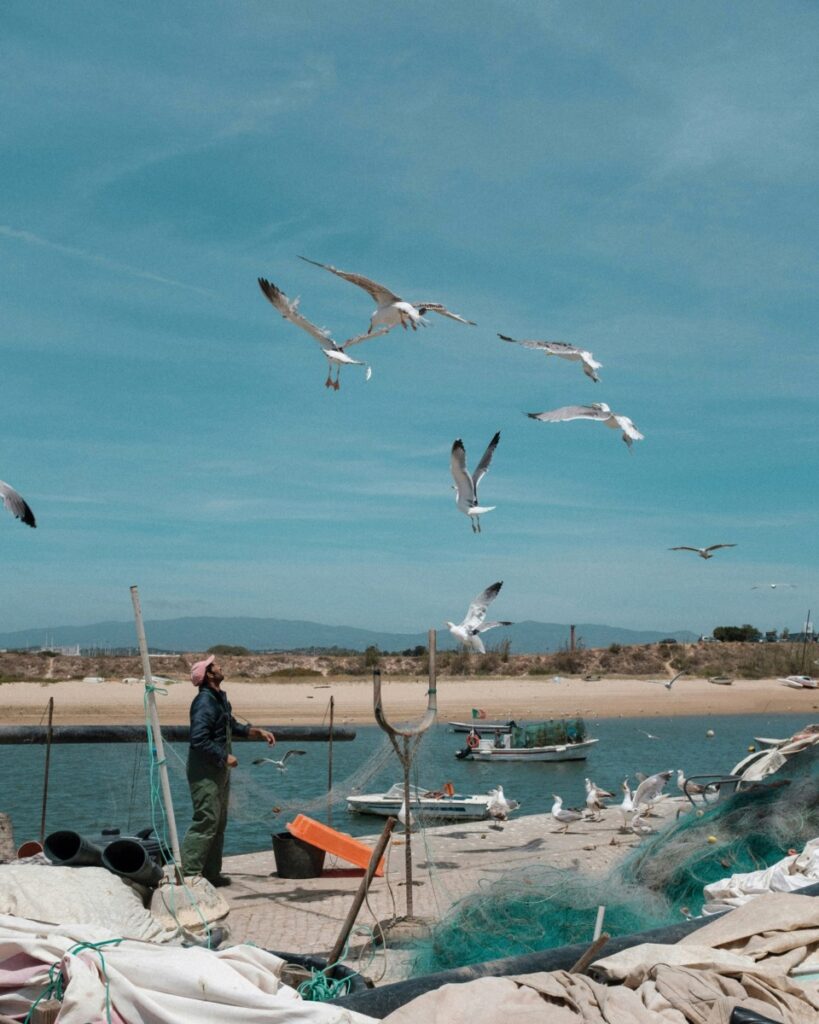
It’s not hard to understand what could be behind this growth in a place known for its delicious gastronomy with sea and country flavours, due to its proximity to the Arade River and the Monchique hills, and even more so for the typical Algarve weather all year round.
The beach, the sun, the summer heat, and the mild winter temperatures may be the motivation for many to move to Ferragudo or open their own business here, however, there is a whole range of factors that guarantee the quality of life that makes them want to stay here forever.
The south of the country is a highly sought-after region, particularly for the English, Dutch, French, Belgians, Finns, and Swedes, and Ferragudo has been winning over the hearts of expats for many years. The boom happened in the 80s with the construction of the first development, Bairro Arade, which brought together foreigners and locals who exchanged their typical houses in the town centre for modern ones.
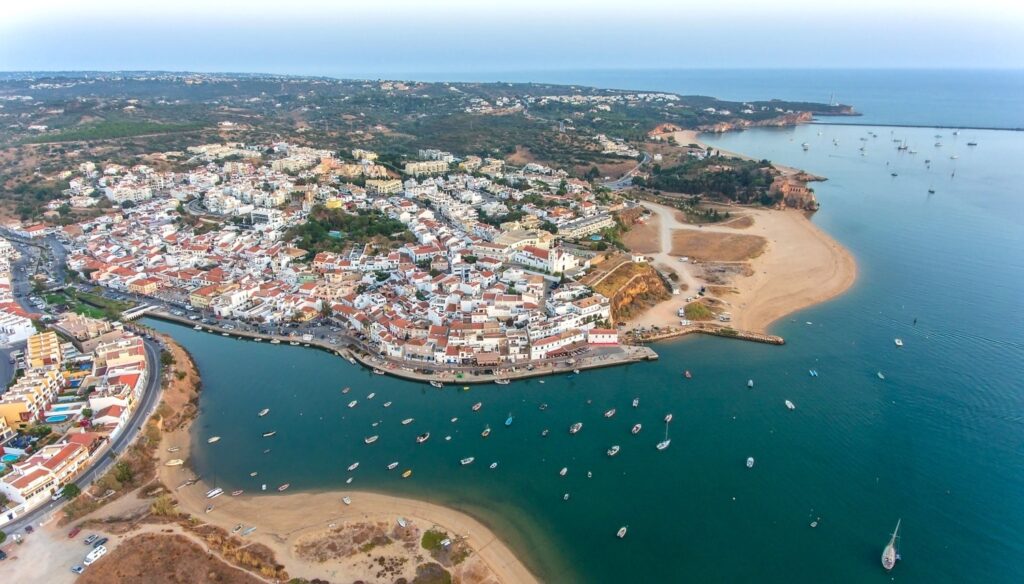
At the same time, the Cerca do Moinho development, Hortinha, and Vila Gaivota were built. Later, in the 90s, Quinta dos Poços, Vila Castello and Aldeia do Farol were inaugurated. A new phase began in 2000, with Vitor’s Village, which a decade later was extended to the Laranjal development.
The president of the Ferragudo Parish Council, Luís Alberto, who was born and raised in the village, has closely followed all these changes.
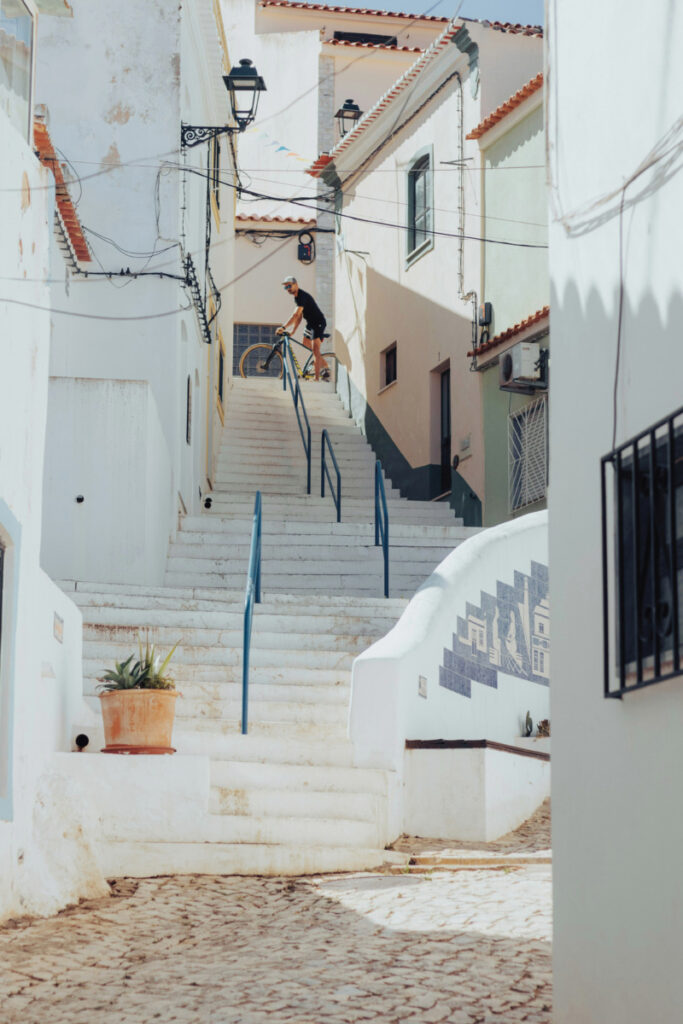
“The highest number of licence requests was between the 1990s and 2000. This was followed by a pause and now we’re seeing the growth of rural tourism spaces (TER) – there’s the possibility of expanding a house in an urban area by up to 2,000 square metres, continuously,” explained the president, pointing out that many old developments belong to Portuguese entrepreneurs, while the new TER projects are owned by foreign investors.
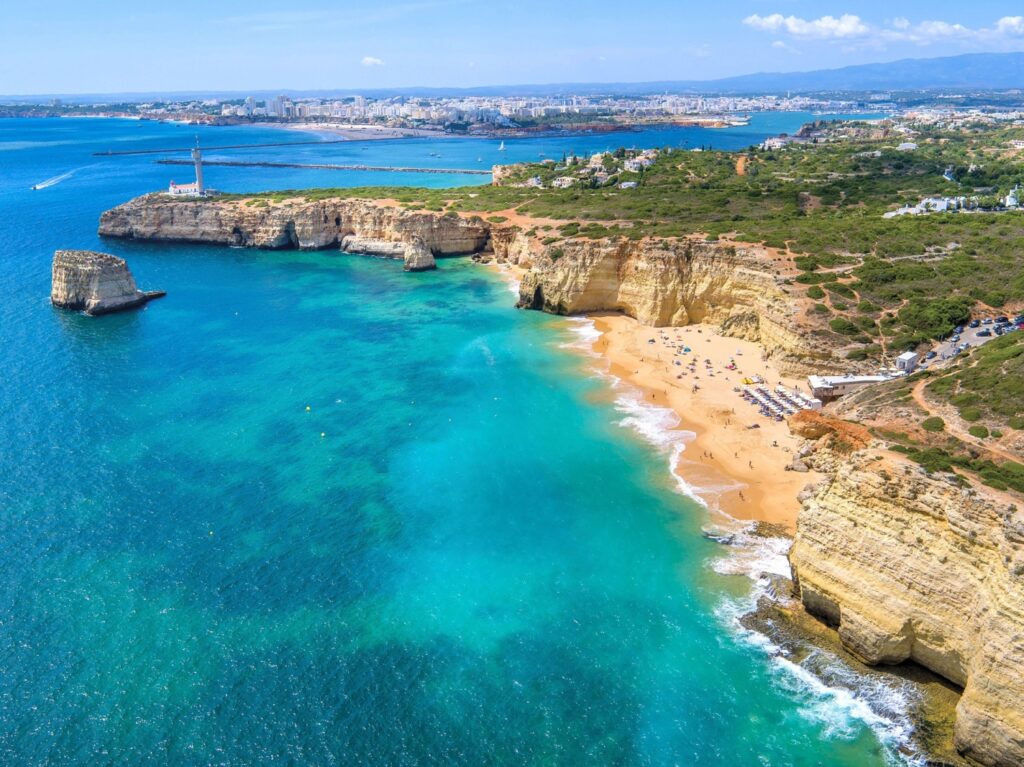
Among them is Vale da Areia, a modern and eco-friendly construction being built on the road that connects Praia Grande to Pintadinho, located just over a kilometre from the centre. The increase in large developments has resulted in the emptying of the old urban centre and the deterioration of the houses and the town. However, recently they are being renovated and turned into Local Accommodation units, although Luís Alberto believes there must be a “control and balance”, to ensure that the housing needs of the local population are met.
As a consequence of constant property development in the area, architecture has also evolved through the innovation, creativity, sustainability, and modernity of new developments or old buildings that have been and are being renovated and restored.
German-born architect Marlene Uldschmidt opened her studio in Ferragudo in 2005 and has paid special attention to the village ever since. She recalls that when she arrived, recurring changes were already commonplace: almost every day, old houses gave way to modern buildings, which are now for rent or sale.
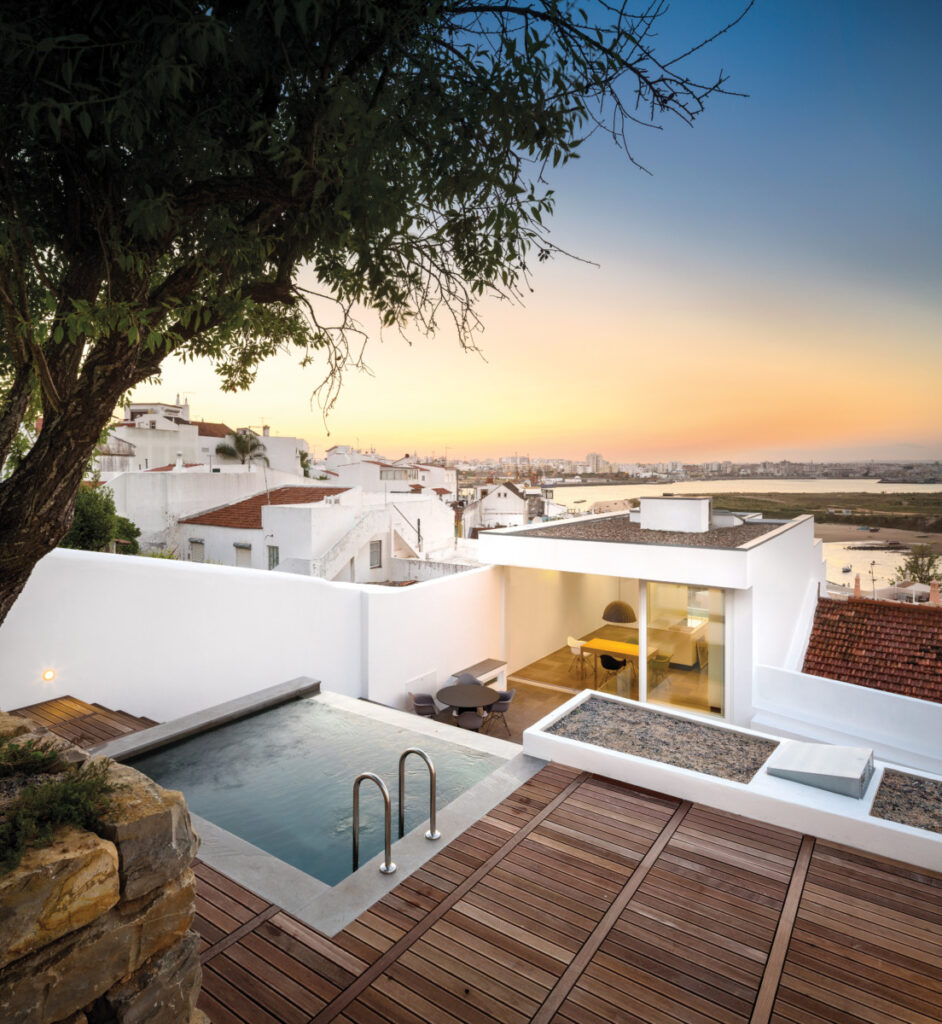
“Nowadays, there is a totally different use of the house, and this reflects not only on the people who inhabit the village but on the architecture itself,” Marlene stated, stressing that “most of the past and current development strategies are focusing on quantity instead of quality, for rentability and profit. It is the result of an economy that overnight shifted its main income from fishing to tourism”.
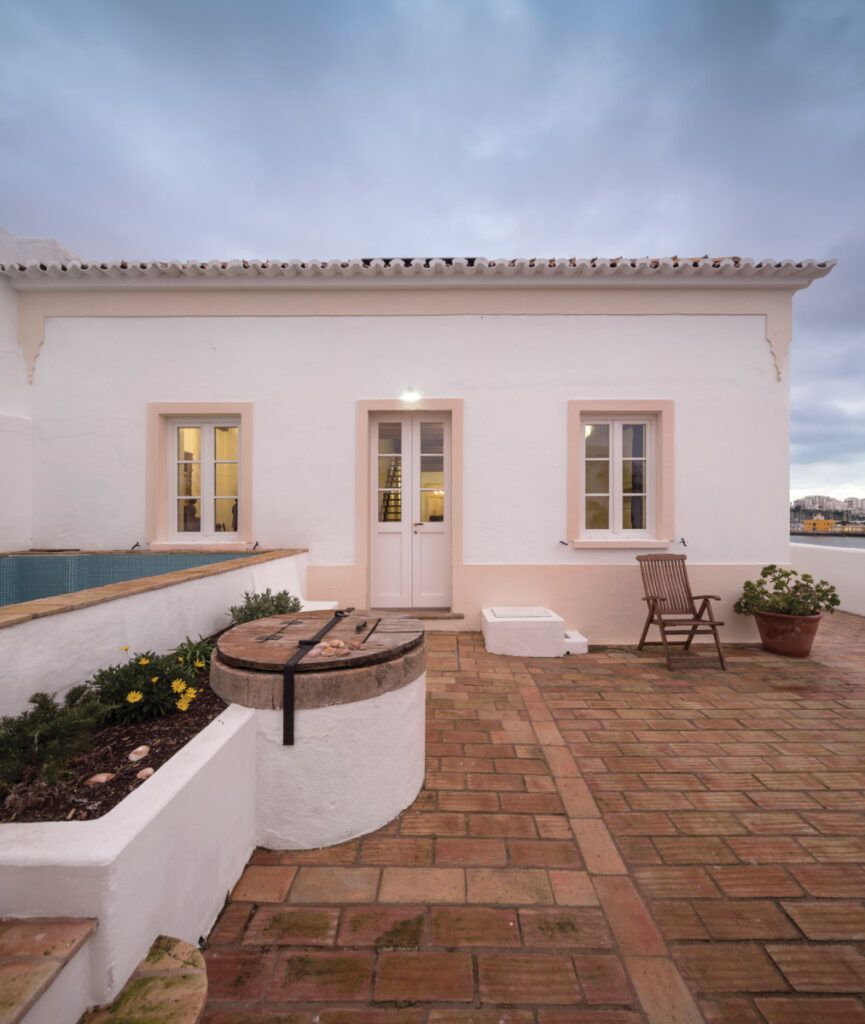
According to Marlene, although the village used to be characterised by “vernacular and poor architecture, with simple shapes and the use of local materials”, in single-floor houses with just one door and window, currently the diversity of construction is enormous and, increasingly, the demand is for “contemporary houses behind old walls”; in other words, a house with Algarvian style, cosy, authentic and unique, combined with the comfort of contemporary design.
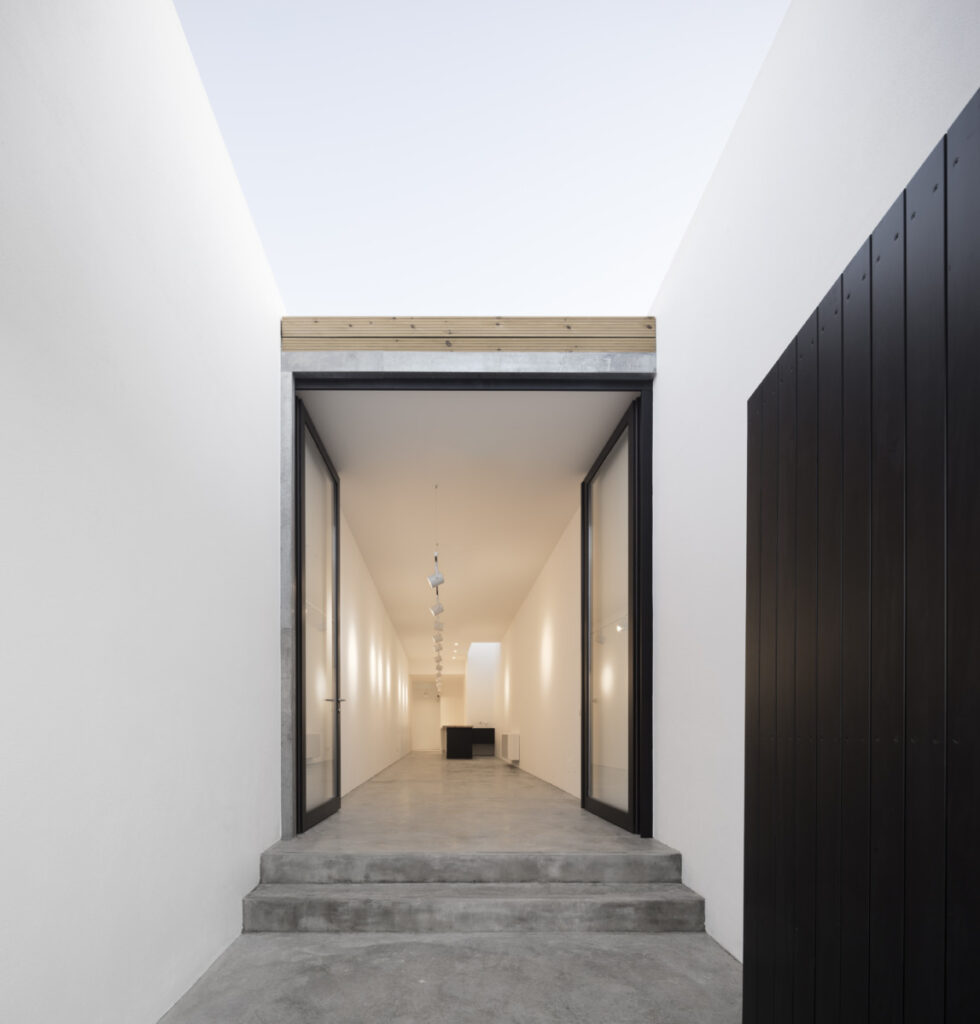
The growing interest of foreigners in this business “is pushing market prices to skyrocket”, says Marlene, who sees this trend as having the effect of a “quick house makeover with cheap materials and a profitable orientation mindset”.
Since the future of the centre only involves reusing old structures, Luís Alberto argues that its growth will involve exploring the surrounding areas and continuing projects that have stalled due to bureaucratic complications, such as the Ferragudo Marina.
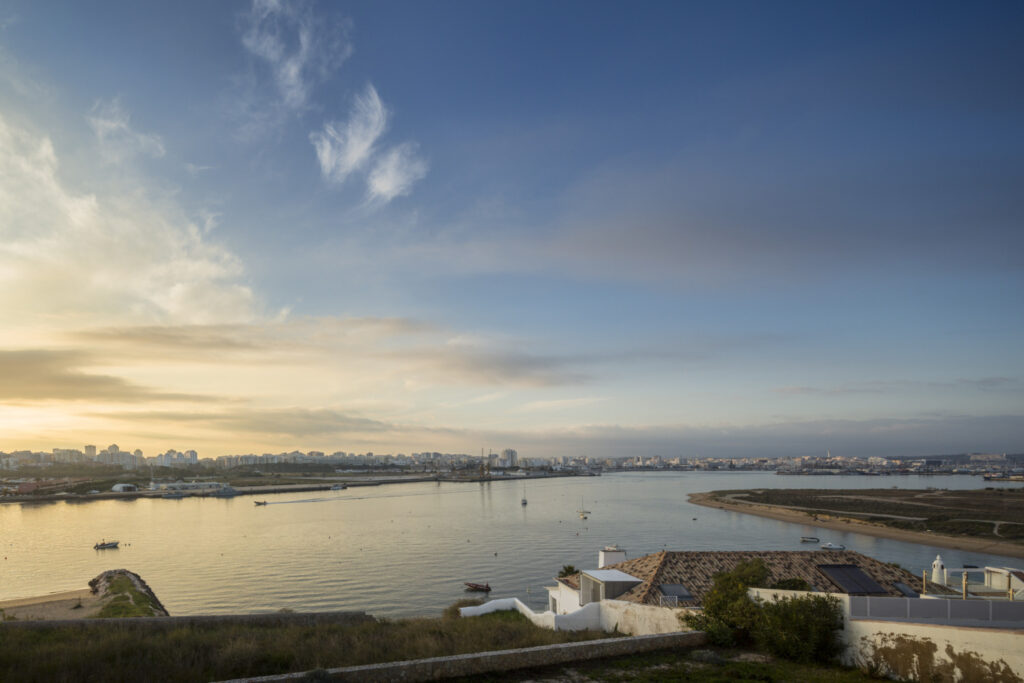
In discussion since 2008, the project for the Marina includes a boat dock, a large car park and a hotel at the entrance to Ferragudo.
At the same time, the former Frito Velho canning factory, which is located there, has also had a property project approved for residential construction.
Aside from the real estate business, Ferragudo has also garnered the interest of hospitality investors, with the opening of the Brícia Du Mar in 2022, a rural tourism space run by a local family.
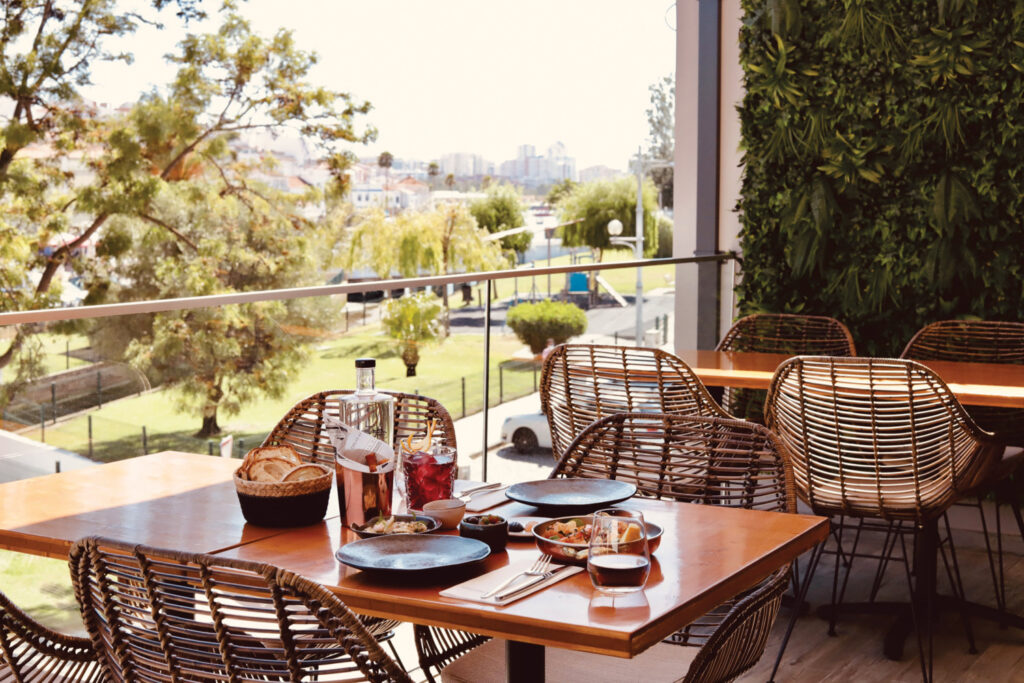
But the booming restaurant industry has been the town’s biggest novelty, with new and unique gastronomic spots in the area.
Such is the case of Brunch in Rio, which opened in 2021 and brought a gastronomic concept to the town that hadn’t existed before, as is Ferragudu’s Terrace – a love letter to the village.
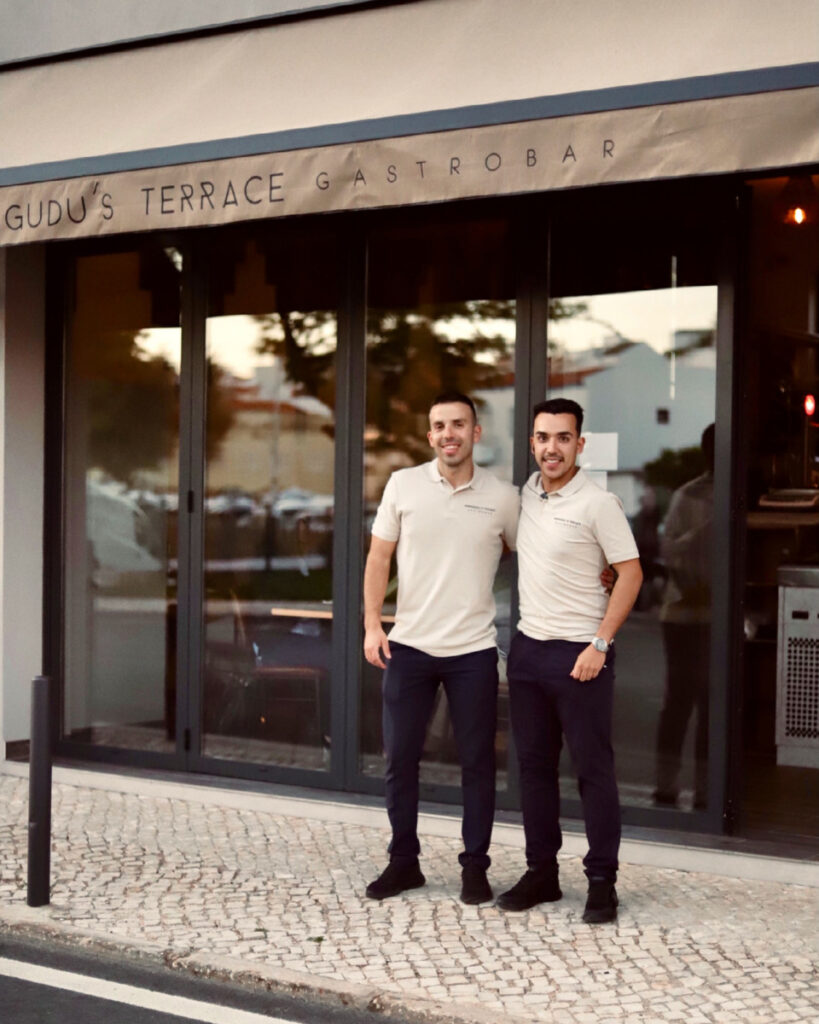
The project was created by brothers João and Pedro Nunes who decided to transform their parents’ old house into a Portuguese food restaurant with a modern and contemporary twist. They have been deepening their experience and knowledge and bringing innovation and a youthful vibe to the village, in a space that welcomes customers of all ages and nationalities. Like other Mediterranean cuisine establishments in the area, Ferragudu’s Terrace stands out for the quality of its seafood and fish from the Algarve coast.
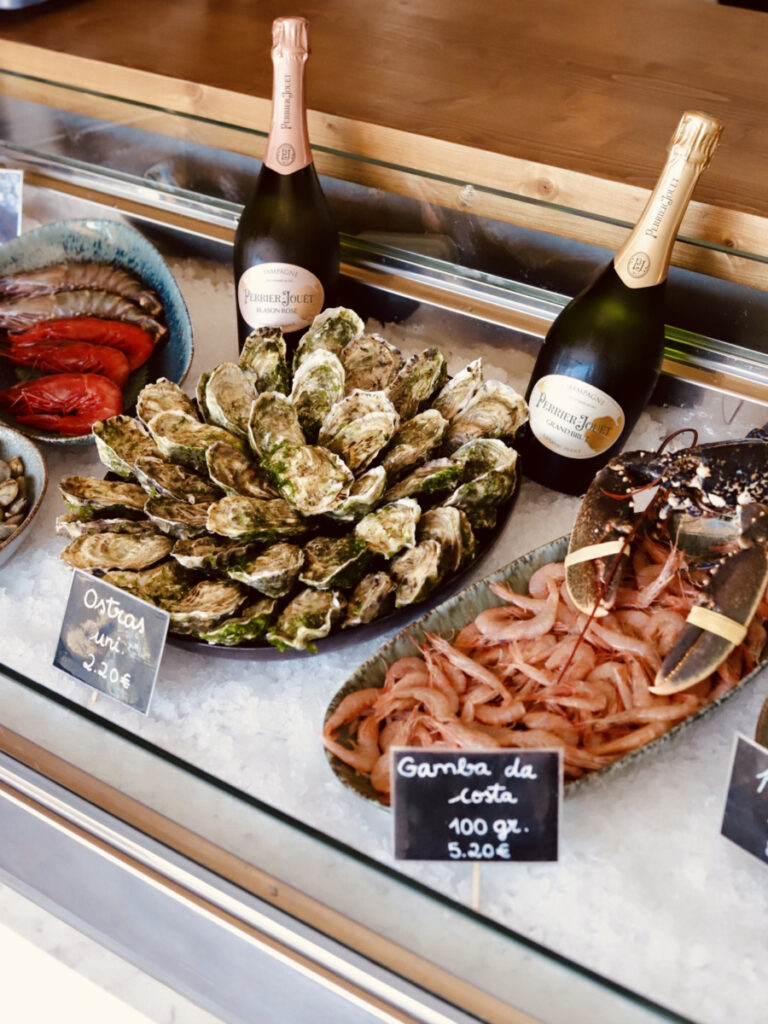
With a privileged location, the restaurant “has increasingly become a place for leisure and not just for meals, for everyone, not just the residents”, commented João Nunes, revealing that the business model was developed based on the values of the village, which is why the brothers encourage visitors to share dishes and social moments, just like in the past.
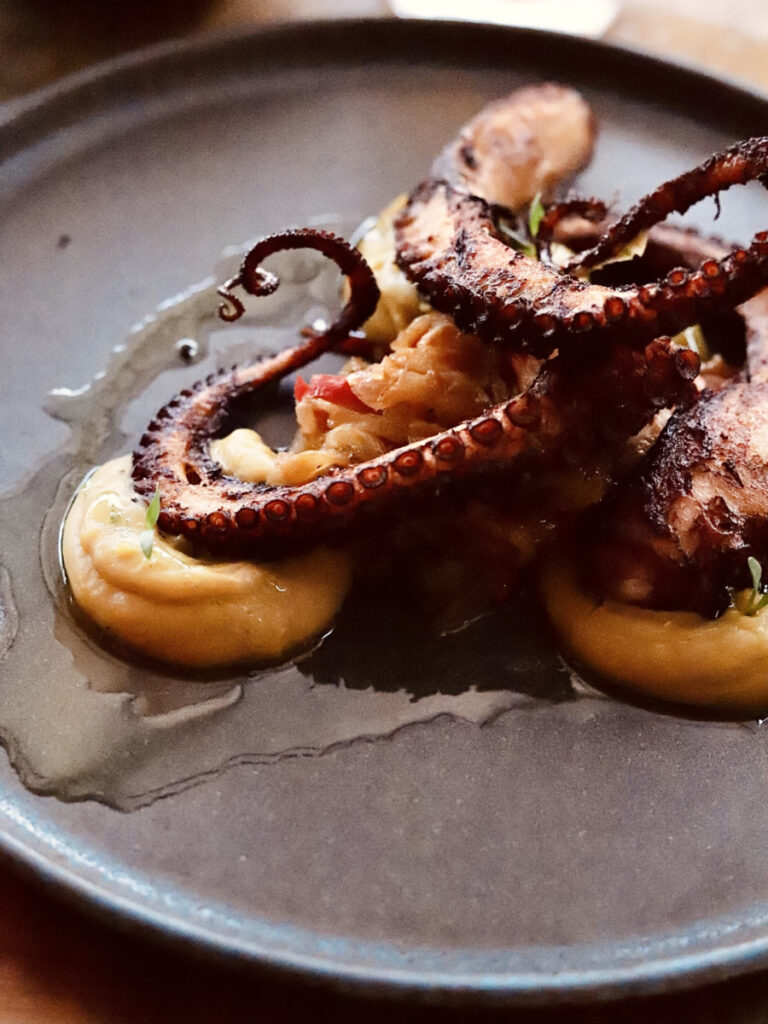
In fact, the majority of hospitality investments have been made by Portuguese, which is also the case with other restaurants such as Novo Mundo and Salga.
Nevertheless, Ferragudo has seen a growth in the gastronomic diversity it offers. Recently, the Italian restaurant Terracotta and the Indian restaurants Indigo and Sikandar have also opened.
Not far off, there are also innovations, such as Edd’s Beach, a unique beach club run by the Dutch family behind Edd’s Wine and SemiXO in Carvoeiro, inviting residents and tourists for a drink with a sea view.
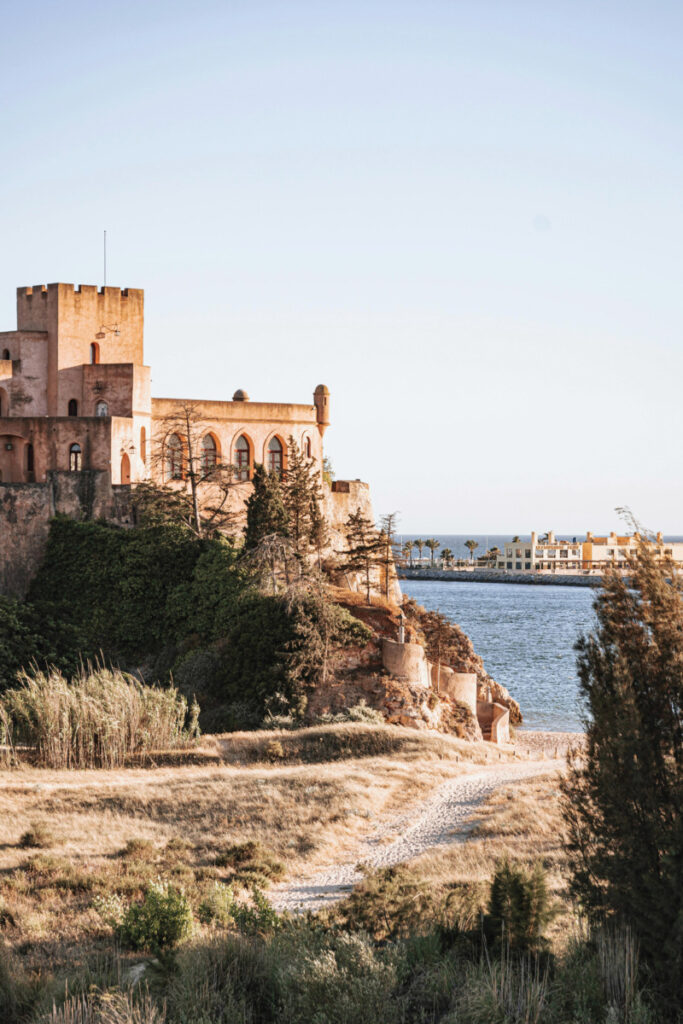
As most of the restaurants and shops are concentrated in the town centre and downtown, Ferragudo’s application for a Digital Shopping District, which will be named Arade in Vista, has been approved.
By the end of the year, services will be modernised, and local life will be energised, and all sectors are likely to see strong growth over the next few years.
Although evolution brings constant change, the essence of this fishing village has been preserved over the decades as a result of a united community focused on sustainability, which relies on the support of the municipality for new projects and ideas.

